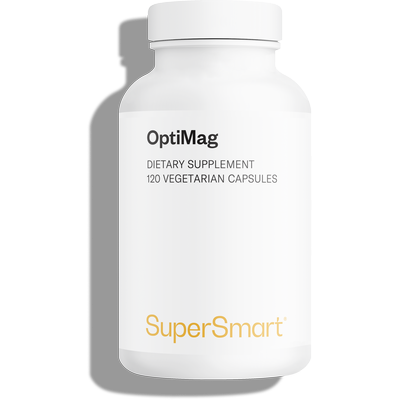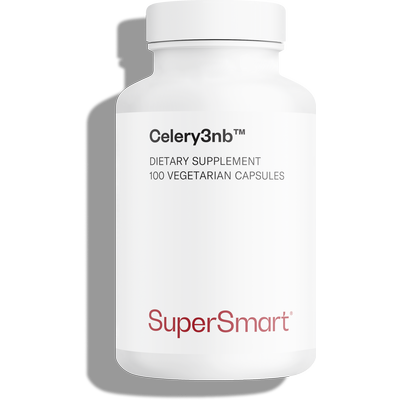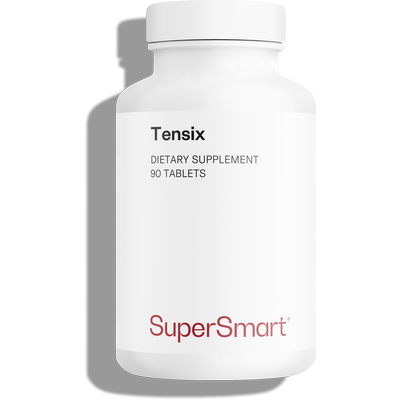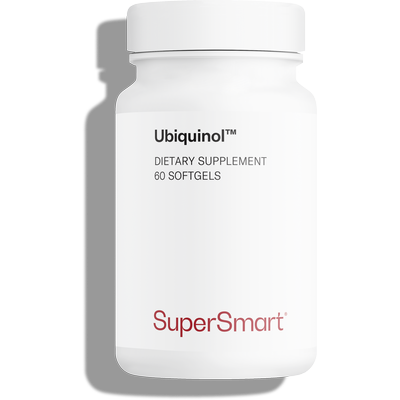16-05-2017
Beneficial nutrients for combatting high blood pressure
 World Hypertension Day is an opportune moment to re-state the importance of preventing and diagnosing this cardiovascular disorder. Characterised by abnormally high blood pressure, hypertension develops silently and thus poses an even greater risk; many people are hypertensive without realising it. It can evolve stealthily over several years and lead to the development of serious health complications. That is why many health professionals are warning of the dangers of this ‘silent killer’ and stressing the importance of proper monitoring. Early diagnosis is associated with more effective treatment. In this respect, certain nutrients may be particularly beneficial for combatting hypertension. Let’s review the latest research findings.
World Hypertension Day is an opportune moment to re-state the importance of preventing and diagnosing this cardiovascular disorder. Characterised by abnormally high blood pressure, hypertension develops silently and thus poses an even greater risk; many people are hypertensive without realising it. It can evolve stealthily over several years and lead to the development of serious health complications. That is why many health professionals are warning of the dangers of this ‘silent killer’ and stressing the importance of proper monitoring. Early diagnosis is associated with more effective treatment. In this respect, certain nutrients may be particularly beneficial for combatting hypertension. Let’s review the latest research findings.
The search for a natural treatment for hypertension
A global public health issue, hypertension can lead to the development of cardiovascular disease. When blood pressure is elevated, it can cause a gradual deterioration in blood vessels and increase the risk of heart attack and stroke. In 2013, the World Health Organization (WHO) estimated that hypertension was responsible for 9 million deaths a year worldwide1. The harmful effects of hypertension can, however, be reduced by taking appropriate measures. These primarily involve changes in lifestyle to reduce risk factors such as smoking, alcohol consumption or poor dietary habits. Nonetheless, high blood pressure may also require medical supervision and ongoing therapy. In this context, research teams across the world are working to develop alternative, natural treatments for hypertension, and a number of genuinely promising approaches have been identified.
The blood pressure-lowering properties of celery seeds
While celery is primarily recognised for its diuretic properties, it may also offer benefits against high blood pressure. A group of researchers looked specifically at the therapeutic potential of celery seeds, evaluating the effects of a number of natural extracts on blood pressure2. Their study, conducted on hypertensive rats, suggested that administration of celery seed extracts significantly lowers blood pressure. The extracts’ hypotensive properties may be due to the presence of an active principle called 3-n-butylphthalide or NBP. This phthalide, which is responsible for celery’s distinctive taste, has been the subject of several scientific studies³. These indicate an antihypertensive effect for this compound which could thus represent an effective solution to high blood pressure. Its benefits have been made available in a patented extract of celery seed called (Celery3nb™. This extract is standardised to 42.5% phthalides, including 3-n-butylphthalide.
Fish peptides for controlling blood pressure
Celery is by no means the only natural product with hypotensive properties. Animal-source compounds have also attracted the interest of the scientific community. Studies have shown that certain peptides in fish have several mechanisms of action which may help regulate blood pressure. These small molecules may work by inhibiting renin, an enzyme which essentially causes a rise in blood pressure. With this renin-inhibitory activity, fish peptides could prove particularly beneficial against hypertension. In this context, a study of 30 hypertensive rats compared the hypotensive effect of fish peptides with that of a drug called captopril prescribed for lowering blood pressure4. It demonstrated a similar effect for both the fish peptide supplements and the captopril. In the light of these positive results, dietary supplements have been formulated from fish peptides. Among them is the formulation (Tensix™ available from the Supersmart catalogue. It contains a patented blend of mackerel peptides (Tensideal®), as well as other nutrients and natural ingredients such as celery seed extract.
The therapeutic benefits of magnesium supplementation
A beneficial nutrient for cardiovascular health
The Tensix™ formulation mentioned above also contains magnesium, an element involved in hundreds of reactions in the body, and essential for good health. It is particularly important for the cardiovascular system in order to maintain a normal heart rhythm. Hence the interest of a research team in the potential benefits of magnesium supplementation against high blood pressure5. These researchers reproduced hypertension in rats, dividing the animals into several groups including a control group and a magnesium-supplemented group. Their systolic blood pressure was monitored throughout the study. At the end of the study period, blood samples were taken from the abdominal aorta. These allowed the researchers to measure magnesium levels in plasma, as well as a number of other parameters such as fibrinogen concentration, whole blood and plasma viscosity, red blood cell aggregation and deformability and intracellular levels of free calcium.
Promising therapeutic prospects
Analysis of these results revealed decreases in blood pressure, plasma viscosity and red blood cell aggregation in the magnesium-supplemented rats. Published in the journal Clinical Hemorheology and Microcirculation, the study’s conclusions open up promising new therapeutic prospects, and also confirm the importance of magnesium for cardiovascular health. For this reason, dietary supplements have been developed to counteract the risk of deficiency, including the formulation (OptiMag, which contains eight different forms of magnesium for optimal absorption.
The protective effect of ubiquinol
Often overlooked, ubiquinol is the reduced form of coenzyme Q10. Known for its antioxidant properties and anti-ageing virtues, CoQ10 has to be converted into ubiquinol in order to become active. While CoQ10 has been marketed for many years, ubiquinol remains largely unknown. However, this active form has a powerfully protective effect on the body, exerting antioxidant activity that fights oxidative stress and free radical damage. This helps prevent the oxidation and ageing of many of the body’s cells including those of the cardiovascular system, hence the increasing scientific interest in ubiquinol’s cardio-protective effects. In 2014, researchers confirmed that ubiquinol constitutes a genuinely promising avenue for treating cardiovascular problems6. In the light of these positive findings, this active form of CoQ10 is now available as the dietary supplement: (Ubiquinol™ 100 mg.
> Sources :
1. OMS, Panorama mondial de l’hypertension - Un «tueur silencieux» responsable d’une crise de santé publique mondiale, 2013.
2. Dianat M, Veisi A, Ahangarpour A, Fathi Moghaddam H, The effect of hydro-alcoholic celery (Apiumgraveolens) leaf extract on cardiovascular parameters and lipid profile in animal model of hypertension induced by fructose, Avicenna J Phytomed, 2015 May-Jun;5(3):203-9.
3. D. Tsi and B. K. H. Tan, Cardiovascular Pharmacology of 3-n-butylphthalide in Spontaneously Hypertensive Rats », Phytotherapy Research, 1997, 11 (8): 576–582.
4. Fujita I. et al., LKPNM: a drug-type ACE-inhibitory peptide derived from fish protein, Immunopharmacology, 1999, 44:123-127.
5. Basrali Filizb et al., Effect of magnesium supplementation on blood rheology in NOS inhibition-induced hypertension model, Clinical Hemorheology and Microcirculation, vol. 63, no. 1, pp. 57-67, 2016.
6. Shen Q. et al., Effects of ubiquinol with fluid resuscitation following haemorrhagic shock on rat lungs, diaphragm, heart and kidneys, Exp Physiol. 2014 Jul;99(7):1007-15.
Order the nutrients mentioned in this article

Unique and synergistic combination of 8 exceptional forms of magnesium (excellent bioavailability and solubility)
www.supersmart.com© 1997-2025 Fondation pour le Libre Choix
All rights reserved
All rights reserved
Free
Thank you for visiting our site. Before you go
REGISTER WITHClub SuperSmart
And take advantage
of exclusive benefits:
of exclusive benefits:
- Free: our weekly science-based newsletter "Nutranews"
- Special offers for club members only

















